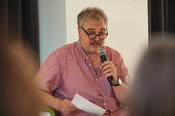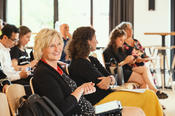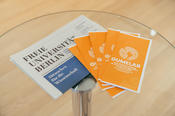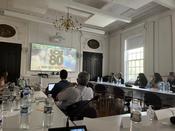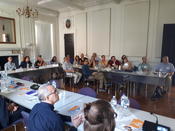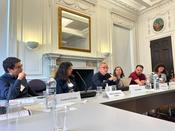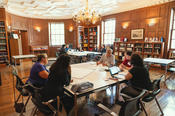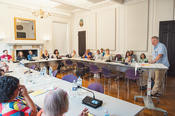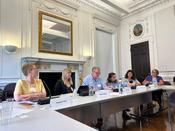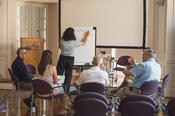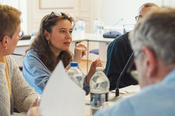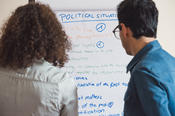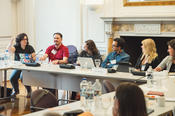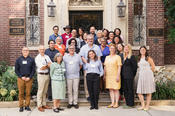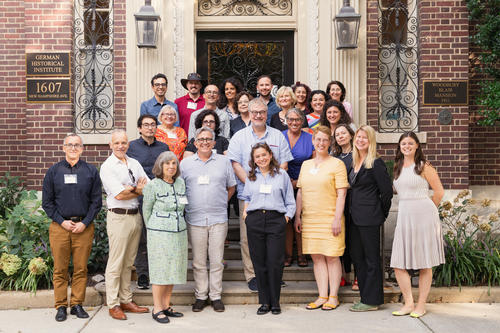GUMELAB Conference "Latin America's Contested Pasts in Telenovelas and TV Series. A cross-sectoral dialog between academia, the entertainment industry and society"
Together with our cooperation partners from the German Historical Institute, GUMELAB organized the international, inter- and transdisciplinary conference "Latin America's Contested Pasts in Telenovelas and TV Series. A cross-sectoral dialog between academia, the entertainment industry and society".
The representation of the past is a sensitive topic that affects various areas of society. Telenovelas and television series that deal with the contemporary history of Latin America can convey images of memory and political values beyond national borders. The conference was a space for discussion and encounters on several levels between academics, television industry employees, civil society organizations and the television audience. The thematic focus was on the challenges and possibilities of conveying contemporary history in television series and on the methods for analyzing the creation, impact and dissemination of these cultural products.
For the kick-off event, the Goethe-Institut hosted an interdisciplinary discussion and film screening about the German-Chilean television series Dignity on September 7. Producers and academics discussed the German-Chilean production Dignity (Joyn 2019 - Mega, 2020). María Elena Wood (idea and executive producer, Wood Producciones, Chile), Andreas Gutzeit (head writer and executive producer, Story House Productions, Germany) and Stefan Rinke (Freie Universität Berlin, GUMELAB) on the relationship between fiction and reality. How is Colonia Dignidad portrayed in this production and how can it influence the audience's perception? What role does fiction play in processes of remembering the past? Why are television series such as Dignity important for establishing a common narrative of Colonia Dignidad in Chile, Germany and beyond?
On Friday, September 8, two roundtable discussions took place, which on the one hand dealt with the representation of fiction and reality from the perspective of production and reception and on the other hand discussed methodological approaches for the analysis of fiction. This was followed by a presentation of GUMELAB's research findings, before an active exchange of knowledge took place among the guests through a structured discussion process (World Café method). Strategic questions of history mediation in entertainment media were discussed, such as the question of critical media consumption and the extent to which telenovelas and series can serve as educational material. The connection between history and current political events, which viewers discuss, and the respectful treatment of those affected in the partly fictionalized plots were also discussed.
Guests and cooperation partners from Colombia, Brazil, Germany, Chile and the USA took part. The conference allowed for an interdisciplinary exchange on telenovelas and series and opened up a dialogue between different areas of production, non-governmental organizations, the education sector and academia.



